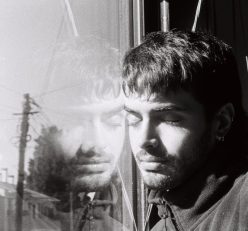My final piece for Creative Projects suffered some metamorphoses along the way. At the beginning of May, I explored Spain and Portugal’s ethnomusicology, hoping to reach a new definition of Iberian music. I discovered new sonic cultures and musical genres along the peninsula. Still, I could link various similarities between Spanish and Portuguese music, which I hoped to accomplish. It is still challenging for me to describe the feeling of belonging in the territory. I’m scared of sounding like a nationalist, but it is essential to connect with this land for me. For me, it’s not patriotism but understanding the people that I grew up with. I’m trying to comprehend a group of people by absorbing all their material and, most importantly, non-material legacy. For instance, the Portuguese are believed to be very melancholic and romantic by looking at their lives. A hopeful sadness. A constant battle against adversity. Desenrasque (Tinkering).
But of course, these broad descriptions will only reach a level of ambiguity that can not describe an enormous group of people. In fact, inside this territory live 50 million people. Inside this 50 million, there are more than ten cultural groups inside them, even more, if divided by provinces, counties, and parish, etc. Pride would be the perfect word to describe every Iberian because they all feel very attached to a specific territory and defend it until someone gets injured. I think it is crucial to agree that what unites Iberia is its diversity, which is not very complex since we can all understand each other. The language barrier is something that not really exist – it is primarily psychological. For example, in La Raya Galega (name attributed to the northern Portuguese border in Galicia), people speak a fused language that is not north Portuguese nor Galician.
The art that I intend to produce under this theme must be unbiased. I want to provoke in people the feeling of familiarity through non-explicit cultural aspects. For example, I don’t want to appeal to Iberian music by focusing on fado. I don’t want to generalise Iberian music by forcingly adding flamenco’s zapateo. I think that are things that connect us all apart from music, costumes and food. Behind that, there is a social and familiar context that is commonly ignored because of its vulgarity. I want to explore those things that I take for granted, or usual, and that, in fact, has a lot of emotional meaning for many people.

